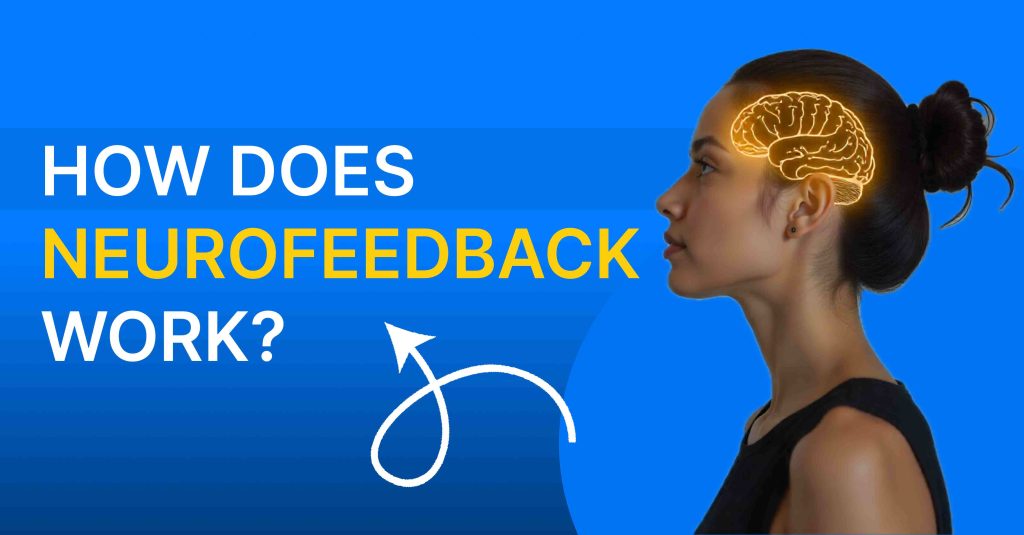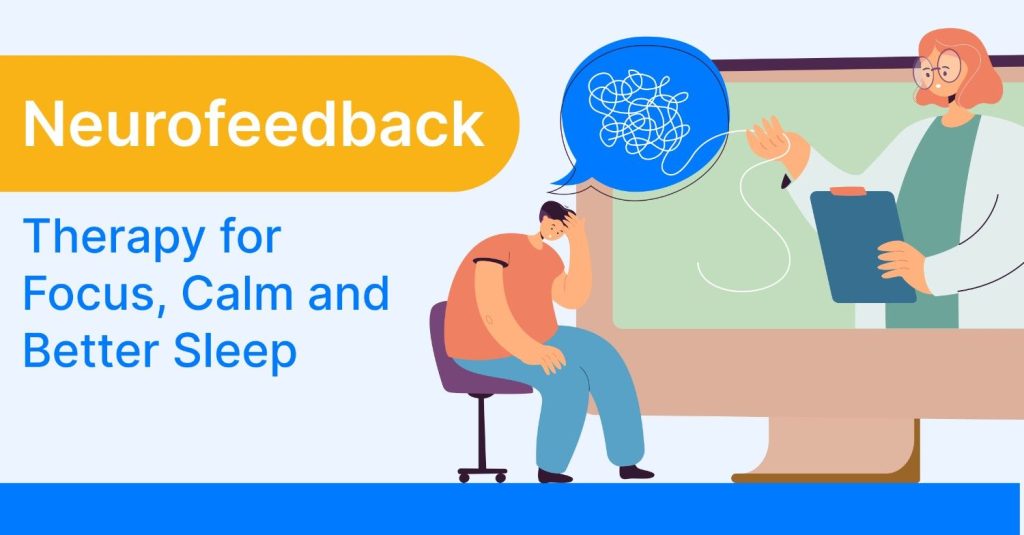Neurofeedback can benefit your mental as well as physical health greatly. Read about the benefits of this practice.
If you think allopathy, homeopathy and Ayurveda are the only ways to cure your mental and physical illnesses, think again. Gone are the days when people relied solely on these mediums to feel better. A new practice called Neurofeedback has entered the medical field and is revolutionizing how people perceive health, especially with regards to mental well- being.
What is Neurofeedback?
Neurofeedback, also known as neuro biofeedback, is a type of feedback that uses real-time data displayed by the brain activity, to get a lowdown into how a person’s brain functions. You can read more about it in detail here. (Will add link once blog is published)
The benefits of Neurofeedback
If you are skeptical about this practice, let us take you through the benefits.
1. Improves attention skills
Neurofeedback helps increase brain wave activity and thus improves working memory and attention span. It also helps improve concentration and this practice, in turn, helps prevent age-related cognitive conditions such as dementia.
2. Helps treat conditions such as ADHD, anxiety and depression
A study published in 2014 in the Journal of Pediatrics highlighted Neurofeedback sessions conducted on 104 school-going children and mentioned that “Neurofeedback participants made more prompt and greater improvements in ADHD symptoms, which were sustained at the 6-month follow-up, than did cognitive training participants or those in the control group. This finding suggests that neurofeedback is a promising attention training treatment for children with ADHD.”
Neurofeedback also helps people deal with anxiety, depression and stress.
3. Plays a role in enhancing neuroplasticity
Neuroplasticity is the brain’s capacity to change and adapt, and Neurofeedback helps enhance the same. The practice also helps improve reaction time.
4. Improves memory
Neurofeedback helps improve short- term, long-term and visual memory. This practice is especially beneficial to patients suffering from brain damage.
5. Results in better sleep
If you are suffering from sleep disorders such as insomnia, sleep talking, sleepwalking or have trouble sleeping in general, Neurofeedback can help a great deal
6. Can help overcome learning disabilities
Kids as well as adults suffering from learning disabilities such as dyslexia, dyscalculia, etc. can overcome their conditions with the help of Neurofeedback.
7. Contributes to handling developmental disorders
These include conditions such as Autism, Asperger’s Syndrome, ADHD (Attention Deficit Hyperactivity Disorder), etc. Neurofeedback training can help improve IQ levels, social behaviour, communication skills etc.
8. Assists recovery from a head injury
Head injuries can lead to cognitive impairments such as losing the ability to speak, hear or see, as well as movement. Therefore, Neurofeedback can help turn this condition around and help people recover from a head injury. Selfhacked mentions a study which observed that 27 patients that suffered from a head injury and brain trauma, showed remarkable signs of improvement after Neurofeedback sessions.
9. Beneficial for treating addiction
Be it smoking, drinking, drugs or even sugar; a person can easily get addicted to any substance that his/her body desires. But Neurofeedback helps keep this urge in check. Addiction can alter the alpha, theta and beta waves in the brain. Therefore, Neurofeedback sessions help normalize these waves, in turn, helping people overcome their addiction.
10. Helps fight migraines
Selfhacked mentions a review paper which discovered that Neurofeedback sessions can reduce migraines and frequent headaches by 50%.
11. Helps overcome PTSD
Post Traumatic Stress Disorder occurs when people experience a tragic or terrifying incident. It can be the death of a close one, torture or abuse of some kind, etc. Neurofeedback can significantly reduce the symptoms and result in a person feeling peace and happiness again.
12. Treats OCD
Certain people may have an obsessive attitude towards cleanliness, keeping things organized etc. If you think they are being difficult, that’s not the case. Such people may be suffering from a condition called OCD (Obsessive Compulsive Disorder) where they feel the need to focus and obsess over certain things. Neurofeedback helps in getting rid of physical and emotional OCD.
To learn more about Neurofeedback, watch this video.
In addition to these tips, Brain & Co. offers med-free treatment that could help you overcome some of the challenges that come with depression/anxiety/sleep issues etc. Visit our website or give us a call to learn more.





